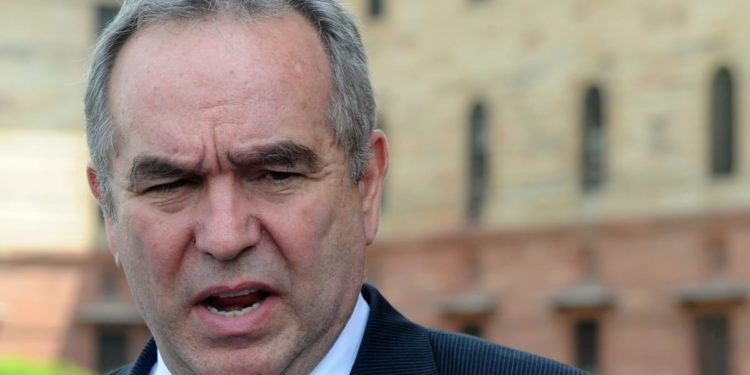BRUSSELS — The U.S. is stepping up diplomatic efforts to convince Europe about the scale of China’s role in aiding Russia’s war against Ukraine.
And according to the second most senior figure in the U.S. State Department, Europe is now hardening its stance on Beijing.
Kurt Campbell — the deputy secretary of state who until recently served as U.S. President Joe Biden’s “Indo-Pacific czar” — this week hand-delivered that warning to European diplomats in NATO with “as much detail and specifics as possible.” His visit came ahead of a big NATO leaders’ summit in Washington in July at which the alliance is expected to send a serious message to Beijing.
“It is fair to say that China’s general goal has been not only to support Russia — in our view, to the hilt — but to downplay that publicly and try to maintain normal diplomatic and commercial ties with Europe,” Campbell told a small group of media outlets including POLITICO during a visit to Brussels on Wednesday.
“And I think what we were heartened by yesterday in the discussions at the NAC [North Atlantic Council, the main political decision-making body within NATO] was how many European countries spoke up clearly, with the view that it would be impossible to maintain a normal relationship with China if, at the same time, the Chinese were surreptitiously abetting the most destabilizing war in Europe since the Second World War,” Campbell said.
Campbell described Beijing’s aid for Russia over the last 18 to 24 months as “deeply concerning.”
“I do want to underscore that what we’ve seen from China to Russia is not a one-off or a couple of rogue firms involved in supporting Russia.
“This is a sustained, comprehensive effort that is backed up by the leadership in China that is designed to give Russia every support behind the scenes that will allow them to reconstitute elements of their military force, their long-range missiles, their UAVs [unmanned aerial vehicles, or drones], some of their capacities to track movements on the battlefield, long-range artillery and the like,” Campbell said. “This is an effort that has been designed to be largely out of view.”
EV tariffs
Apart from the Russian war, the other common focus for the U.S. and EU has been on China’s overcapacity when it comes to trade.
Earlier this month, the Biden administration quadrupled the tariffs on Chinese electric vehicles to 100 percent. The European Commission is expected to start imposing tariffs shortly.
European firms — from German auto giants to French cognac-makers — have been appealing to their countries not to go down the path of a trade war with China, for fear of losing market access should the Chinese authorities take punitive action in retaliation.
Campbell cited China’s economic uncertainties as a reason Beijing might not retaliate against Europe — if tariffs are imposed — as rigorously as it had in the past.
“In the current environment, I think China is aware of some of the vulnerabilities of its own economy, and so it has been wary to undertake some of the full-scale efforts [of] retaliation that we’ve seen in previous periods against Australia, South Korea, Philippines and others,” he said. “I don’t think that should give us too much comfort. But I think there is a recognition right now that the economic and commercial circumstances are more complex, from Beijing’s perspective.
“In many respects, if steps are coordinated among countries, it is then more difficult to retaliate at simply one country or the other,” said Campbell.
The post US warns Europe to get serious about China’s aid to Russia appeared first on Politico.



















